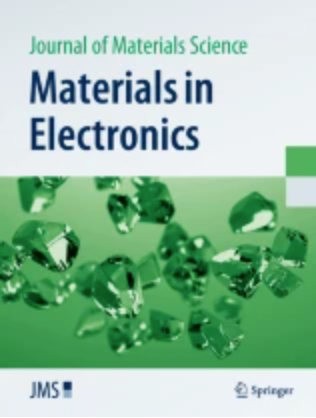Study on benzimidazole single crystal: mechanical, optical, thermal characteristics and theoretical analyses for optoelectronic applications
Abstract
This work focuses on growth of benzimidazole (BMZ) crystal using slow evaporation solution growth technique (SEST) and its characteristics are studied by analysing its optical, thermal and topological parameters. The structural parameters were determined from powder X-ray diffraction (PXRD) analysis. Mechanical properties of BMZ crystal were analysed by Vickers microhardness tester. Meyer index (n) for the material was determine as 2.28 showing that it is soft category material. UV–Visible spectroscopy was adopted to know the optical behaviour of the grown crystal. UV–Visible spectroscopy shows that the grown BMZ crystal has cutoff wavelength of 310 nm and energy bandgap of 4.1 eV. Thermal properties of BMZ were investigated by thermogravimetric (TG/DTA) analysis which shows that the grown crystal is thermally stable upto 165 °C and has melting point of 170 °C. The cluster’s optimized characteristics, Mulliken atomic charge, frontier molecular orbital, and molecular electrostatic potential were estimated through DFT (density functional theory) method. The work utilized topological analysis techniques, ELF (electron localization function), NCI (non-covalent interaction) and LOL (localized orbital locator) to investigate the intermolecular interactions in benzimidazole.

 求助内容:
求助内容: 应助结果提醒方式:
应助结果提醒方式:


